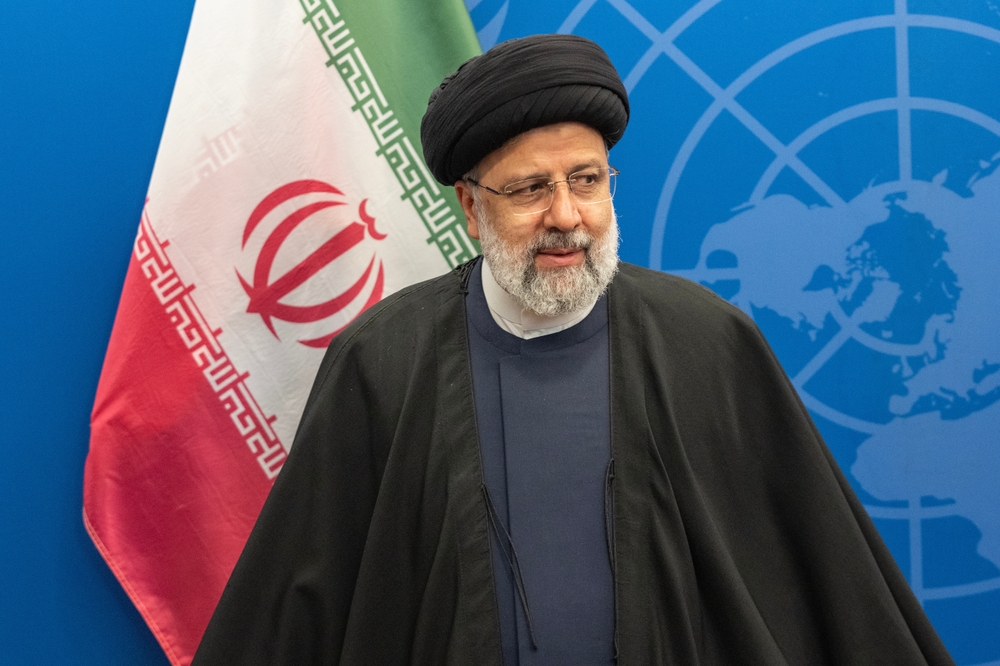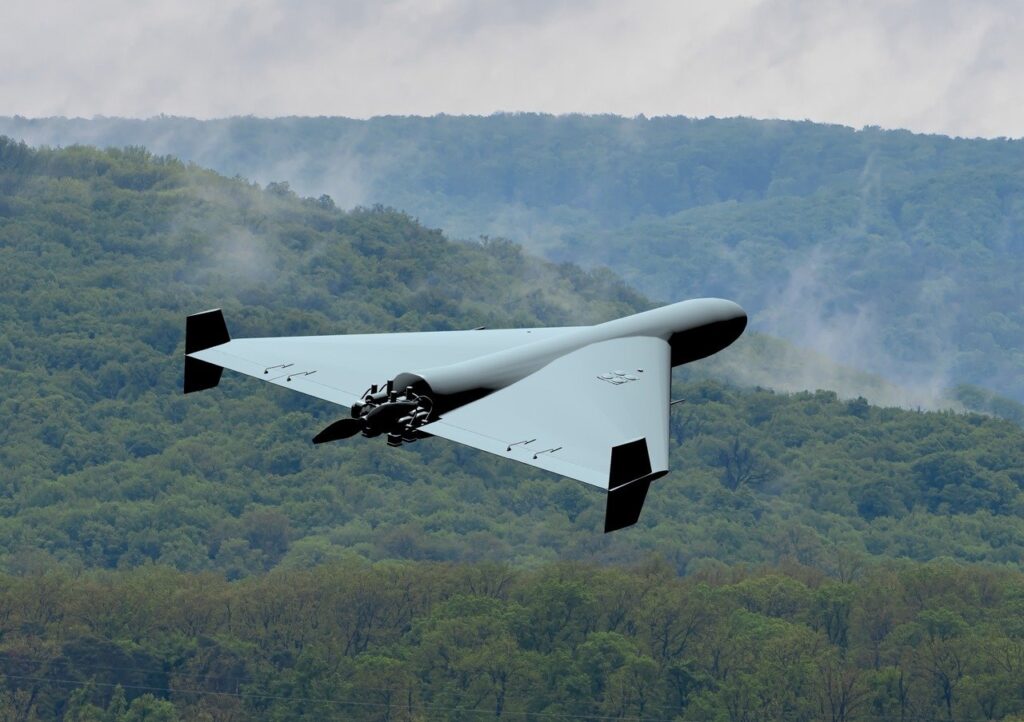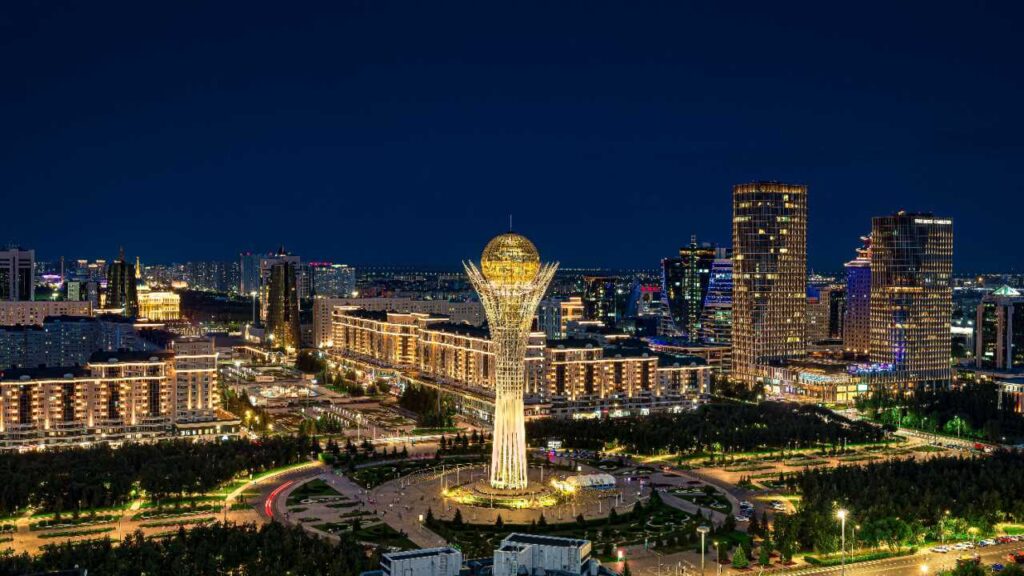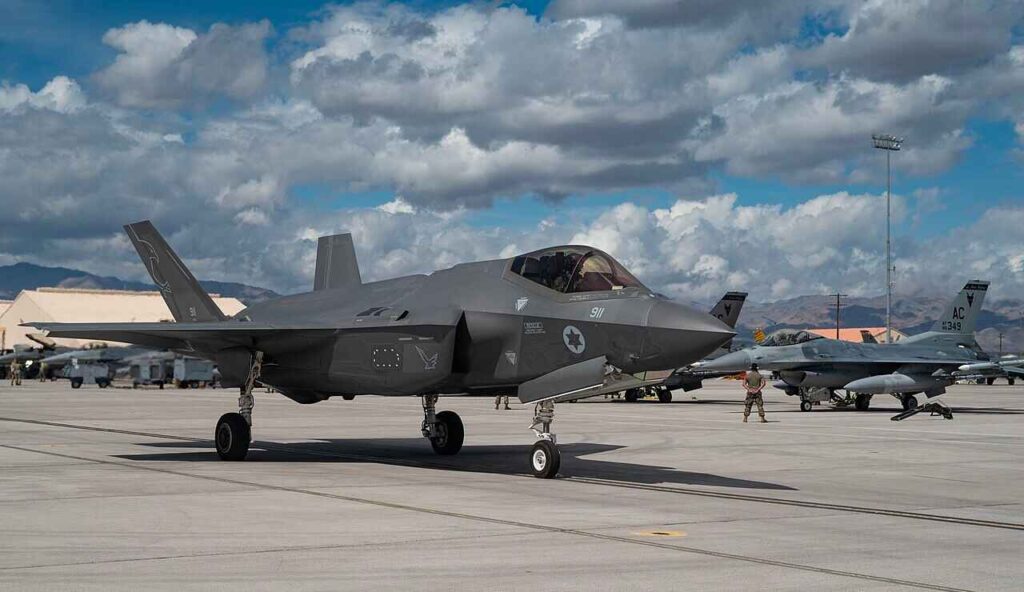
Iran and Turkmenistan’s Relationship Steadily Improves
Since Ebrahim Raisi became Iran’s president, Tehran has pursued a “Neighbors First” foreign policy strategy. With the Islamic Republic under continued Western sanctions and other forms of pressure, Tehran has focused on improving its relations with states surrounding Iran to counter Western efforts to isolate and weaken it.
Discussions of Iran’s “Neighbors First” foreign policy agenda often leave out Turkmenistan. Perhaps this is understandable, considering that the ins and outs of Tehran-Ashgabat relations rarely make headlines. In recent years, the Iranian-Turkmen border area has been quiet, especially compared to Iran’s borders with Afghanistan and Pakistan. Consequently, bilateral relations, driven mainly by geo-economics, are free of huge problems.
A flurry of diplomatic activities and cooperation in various domains has improved Iranian-Turkmen ties since Raisi’s presidency began in 2021. Nonetheless, bilateral trade levels are low at roughly $500 million. Therefore, despite Iran and Turkmenistan having the potential to grow their economic relationship, Iran’s trade with Turkmenistan and other Central Asian countries can only do so much to decrease the financial pressures caused by Western sanctions.
Diplomatic Engagement Since 2021
On March 28, 2024, Iranian Foreign Minister Hossein Amir-Abdollahian was in Turkmenistan on a two-day visit to the Central Asian country. Tehran’s chief diplomat met with his Turkmen counterpart, Rashid Meredov, and the two “expressed satisfaction with the progressing relations between the two countries.” Amir-Abdollahian also met with People’s Council of Turkmenistan chairman Gurbanguly Berdimuhamedov to discuss a host of bilateral, regional, and global issues. This visit paid by the Iranian foreign minister followed other meetings between top officials of both countries over the past two years.
The President of Turkmenistan, Serdar Berdimuhamedow, and other high-ranking officials from Ashgabat came to Tehran in June 2022. The two governments signed nine memoranda of understanding covering investment, economics, transport, environmental protection, and other areas. While holding a press conference in the Iranian capital with his Turkmen counterpart, Raisi declared that Tehran was determined to enter a twenty-year deal with Turkmenistan. During that visit, Berdimuhamedow also met with Iran’s Supreme Leader Ayatollah Ali Khamenei. Khamenei emphasized that Tehran and Ashgabat have practical needs for higher levels of bilateral cooperation, saying that “Iran’s policy of expanding ties with neighboring countries is a completely correct policy.”
In May 2023, President Raisi and the Chairman of the People’s Council of Turkmenistan, Gurbanguly Berdimuhamedow, signed five documents in Tehran to bolster bilateral cooperation in agriculture, education, electricity exchanges, investment, and international corridors. Berdimuhamedow hailed his country’s “friendly and brotherly” relations with the Islamic Republic and promised that Ashgabat would work on elevating them to new heights.
Six months later, Iran’s Minister of Transport and Urban Development Mehrdad Bazrpash met with Turkmenistan’s President Serdar Berdimuhamedow in the Turkmen capital. In their meeting, the Iranian minister addressed the Raisi administration’s “Iran Way Initiative,” which permits Iran’s neighbors to use it as a route to international waters. Bazrpash stressed that Turkmenistan is uniquely positioned in the “Iran Way Initiative.”
Located in a part of the world with growing geopolitical importance, Iran and Turkmenistan maintain a relationship, which Dr. Edward Wastnidge, Senior Lecturer in Politics and International Studies, Open University, describes as “pragmatic and transactional.” Iran values Turkmenistan’s official foreign policy position of neutrality, especially within the context of Iran’s quest to find economic partners in the neighborhood to counter the effects of Western sanctions and pressure. Tehran and Ashgabat “both have to contend with a certain degree of strategic isolation borne, in part, of their mutual desire to maintain independence in their foreign policies,” added Dr. Wastnidge.
“Probably the most important aspect of the two countries’ bilateral relations is that neither considers the other a security threat,” said Bruce Pannier, a Central Asia Fellow at the Foreign Policy Research Institute, in an interview with this author. He observed that officials in Tehran are “well satisfied” with Turkmenistan as a neighboring state.
Iran is sensitive to how its neighbors can exploit Tehran’s problems with the West and tensions between Iran’s government and various minority groups located in peripheral regions of the country. Turkmen minorities are in Turkmen Sahra, a region in northeastern Iran’s Golestan and North Khorasan provinces along the border with Turkmenistan and near the Caspian Sea. Dr. Shireen Hunter, an honorary fellow at the Center for Muslim-Christian Understanding at Georgetown University who served as an Iranian diplomat before 1979, told this author that “Iran’s main interest regarding Turkmenistan is to prevent its government from manipulating its Turkmen minority as the Republic of Azerbaijan, and at times, Turkey has done with Iran’s Azerbaijani citizens.” That Turkmenistan does not play this card to fuel friction between Iran’s central government and the country’s Turkmen minority groups has been positive for Tehran-Ashgabat relations.
“The Turkmen government is confused and eccentric but represents no threat to Iran and the authoritarian system in Turkmenistan guarantees there will never be an Iranian opposition presence there,” explained Pannier. He noted, “If you look at some of Iran’s other neighbors, you can understand how having one neighbor with an incompetent, sometimes troublesome, but harmless government is a relief, particularly when you share a 1,150-kilometer border with that country.”
Energy
Natural gas is a critical part of Iranian-Turkmen relations. With the world’s fourth largest natural gas reserves and an economy heavily dependent on this resource, Turkmenistan values the opportunity to sell its natural gas to Iran, which the Central Asian country has been doing since 1997. Tehran benefits from Turkmenistan, which shares a border with northern Iran, which is not well connected to Iran’s pipeline network and power grid and has long suffered from gas shortages. This spares Iran the need to invest in expanding its pipelines from the country’s gas fields in the south to its northern areas near Turkmenistan.
However, in 2017, gas-related issues significantly harmed bilateral affairs. On the first day of that year, Turkmenistan cut off gas deliveries to Iran following failed attempts at resolving some differences between Tehran and Ashgabat over Turkmenistan’s gas shipments and gas quality issues. Ashgabat’s position was that Iran needed to pay off a $1.8-2 billion debt from 2007-8. In fact, during the 2007-8 winter, Turkmenistan also halted gas supplies to Iran.
This dispute went to the International Court of Justice (ICJ) for arbitration. The World Court ruled that Iran needed to pay Turkmenistan $2 billion. Shortly after Raisi became Iran’s president in 2021, Tehran and Ashgabat settled the dispute through “successful economic diplomacy,” as Iranian state-run media described it. However, the tensions caused by that dispute still negatively impact Iranian-Turkmen relations, explained Pannier. “Iran has its reasons for believing Turkmenistan was trying to bring in badly needed revenue by squeezing Iran for more money, and Turkmenistan still seems to feel its demand for payment was entirely justified.”
In November 2021, Iran, Turkmenistan, and Azerbaijan signed a groundbreaking trilateral gas swap agreement, which went into effect in January 2022. This swap deal arranged for Iran to receive gas from Turkmenistan and pipe the same amount to Azerbaijan. Yet, in January 2024, the parties’ failure to agree on commercial terms led to this swap deal’s suspension.
A Broader Trade Network
Today, Iran and Turkmenistan’s potential to serve as essential transit countries probably matters most to Tehran-Ashgabat relations. Turkmenistan sees value in Iran as a transit country linking the gas-rich Central Asian state to Turkey and the Arab world. Iran is interested in opening a North-South railway-maritime trade route connecting Russia to India via Kazakhstan, Turkmenistan, and Iran. “The link to India is accomplished by using Iranian Persian Gulf ports. It would boost Iran’s trade and facilitate access to goods Tehran cannot buy from the West,” Pannier told this author.
Nonetheless, U.S. policies toward the Islamic Republic are undermining Iran and Turkmenistan’s bilateral cooperation in transportation. “Iran provides the best access route for Turkmenistan to open seas. However, because of American policy of preventing trade routes or pipelines through Iran going back to the early 1990s, this aspect of the two states’ relations has not expanded. Moreover, because of American sanctions, Iran has not been able to expand its network of road and rail connections,” said Dr. Hunter.
Security Dimensions
Iran is not concerned with terrorism emanating from Turkmenistan. Whereas many violent extremists that attack targets in Iran enter via Iraq and Pakistan, there have not been any major issues with armed groups coming from Turkmenistan to wage attacks inside Iran. There is hardly any Iranian-Turkmen counterterrorism cooperation.
“Terrorism is not a particular problem in Turkmenistan. A few hundred Turkmen went to fight in Syria and Iraq, and some have relocated to Afghanistan to fight with [Islamic State in Khorasan Province (ISKP)]. But they have never conducted an attack inside Turkmenistan,” Dr. Edward Lemon, a research assistant professor at the Bush School of Government and Public Service, Texas A&M University, and president of the Oxus Society for Central Asian Affairs, told this author.
Nonetheless, Iran and Turkmenistan, which both border Afghanistan, have a common cause. ISKP is the top security concern for Tehran and Ashgabat vis-à-vis post-occupation Afghanistan. “ISKP is a threat to both Iran and Turkmenistan, for different reasons—Iran because it is a majority Shia country and Turkmenistan because it is a sparsely inhabited country with an unpopular, corrupt, and secular government,” explained Pannier. “Despite the common threat ISKP represents for both countries, there is no evidence the two governments discuss ISKP.”
Although neither Iran nor Turkmenistan’s government viewed the Taliban’s return to power as a positive development, Tehran and Ashgabat seem committed to making the best of the situation. It is important to note how, during the Taliban’s 1996-2001 rule, Iran and Turkmenistan approached Afghanistan’s Islamic Emirate regime differently. Whereas Iran was on hostile terms with the Taliban, having nearly gone to war with Afghanistan’s reactionary government in 1998 and backing the Taliban’s ouster in 2001, Turkmenistan’s approach differed. Although Ashgabat never formally recognized the Taliban, the Islamic Emirate had a representative office in Turkmenistan during the 1990s. Today, just like in the 1990s, Turkmenistan enjoys a UN-recognized neutral status, which the country has leveraged to keep Ashgabat open to cooperation with different Afghan actors.
“Iran seems to have grudgingly taken a page [from] Turkmenistan’s playbook from the late 1990s. The Taliban are back in Afghanistan and there really is not much that can be done about that, especially now that they have all those American weapons they captured when they returned to power. So better, for now, to just try to deal with the Taliban and avoid unpleasantness, such as what occurred along the Iranian-Afghan border in May 2023,” Pannier told this author.
Potential Sources of Tension
With the 2017 gas dispute now resolved, there are no major sources of tension between Iran and Turkmenistan. The Raisi administration’s quest to improve the Islamic Republic’s ties with neighboring countries has steadily improved Tehran-Ashgabat relations since 2021. Nonetheless, with changing circumstances at the regional and global levels, potential problems in bilateral affairs risk emerging down the line.
Turkmen-Israeli relations could lead to Iranian perceptions of Ashgabat as a threat. With Israel having deepened its ties with some of Iran’s other neighbors, including Azerbaijan, Bahrain, northern Iraq, and the UAE, officials in Tehran are constantly nervous about Israel’s presence growing in land close to Iran’s borders. “Iran is concerned about Israel’s influence in the Caucasus and Central Asia. It fears being encircled by Israel. If Turkmenistan becomes too close to Israel, it might affect its relations with Iran. Iran and these regions are extremely susceptible to the ebb and flow of international politics,” Dr. Hunter told this author.
Another possible source of tension between Tehran and Ashgabat pertains to the proposed Trans-Caspian Gas Pipeline. This initiative would enable Turkmenistan’s gas to be exported to Turkey and Europe via the Caspian Sea and Azerbaijan. Tehran does not welcome such plans. “Iran has long opposed such a move, due to the impact it would have on Iran’s geostrategic position as a possible transit for Central Asia’s resources, as well as environmental and legal concerns regarding the Caspian’s status,” Dr. Wastnidge told this author.
“The project has been around for some 30 years, but Iran and Russia have always objected on the basis of potential damage to [the] Caspian biosphere, though some suspect the real reason is that neither Iran nor Russia want Turkmenistan to ship gas to Europe, a market both Moscow and Tehran would prefer to have for themselves,” according to Pannier.
Despite these sources of potential tension, Iran and Turkmenistan favor the positive trajectory of their bilateral relationship for now. At a time in which Tehran remains on hostile terms with the United States and Israel while its relationships with EU members have deteriorated, Iran does not seek problems with Turkmenistan and other Central Asian states. For its part, Turkmenistan understands that Iran maintains a powerful military despite the heavy sanctions. Therefore, Ashgabat has no incentive to needlessly aggravate Tehran.
Giorgio Cafiero is the CEO of Gulf State Analytics, an Adjunct Assistant Professor at Georgetown University, and an Adjunct Fellow at the American Security Project. He frequently contributes to Al Jazeera, Gulf International Forum, The New Arab, Responsible Statecraft, Stimson Center, and Amwaj.Media. Throughout Mr. Cafiero’s career, he has consulted many public and private sector entities, briefed diplomats of various countries on Gulf affairs, and worked as a subject matter expert for multinational law firms. Mr. Cafiero holds an M.A. in International Relations from the University of San Diego.
Image: Shutterstock.com.


